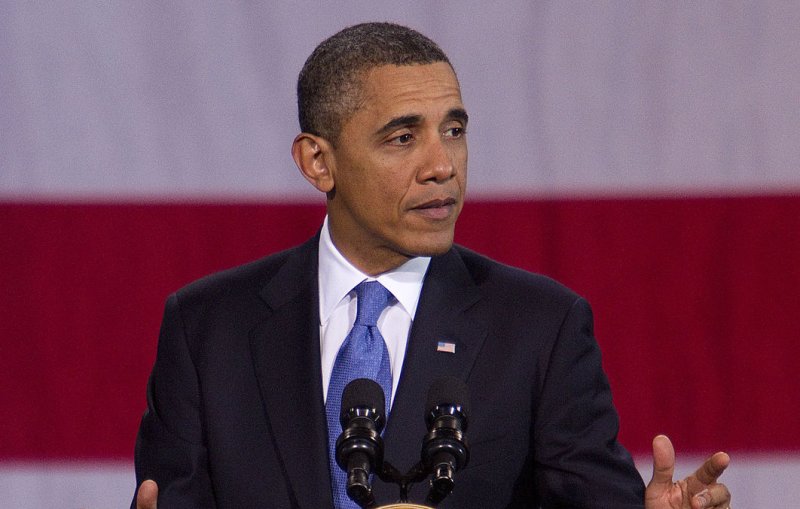President Barack Obama speaks at Buckley Air Force Base on January 26, 2012 in Aurora, Colorado. President Obama is using his western trip to promote the broad ideas contained in his State of the Union Address to create jobs, improve education and teachers, and create incentives for renewable energy. Colorado is a swing state critical to President Obama's re-election in November. UPI/Gary C. Caskey |
License Photo
PRINCETON, N.J., Jan. 27 (UPI) -- U.S. residents split along party lines in their opinions of President Obama's performance, with his ratings the most polarized ever, a Gallup poll says.
In a report released Friday, Gallup said 80 percent of Democrats and 12 percent of Republicans approved of how Obama carried out his responsibilities in 2011. That is the sharpest divide since Gallup began tracking presidential approval during the Eisenhower administration.
Obama has now set three records with the biggest partisan split ever for a first-year president and for a president in his second and third years in office.
"That may not be a reflection on Obama himself as much as on the current political environment in the United States, because Obama's immediate predecessor, Bush, had similarly polarized ratings, particularly in the latter stages of his presidency after the rally in support from the 9/11 terror attacks faded," the report said.
The partisan divide is likely to get bigger this year because of the upcoming presidential election, Gallup said. Historically, presidents are least likely to get support from across the aisle when they are seeking second terms.
The numbers are based on telephone surveys in the year after Jan. 20, 2011, of 179,170 adults, including 52,632 Republicans and 54,675 Democrats.
The margin of error for results based on the entire sample is 1 percentage point.















